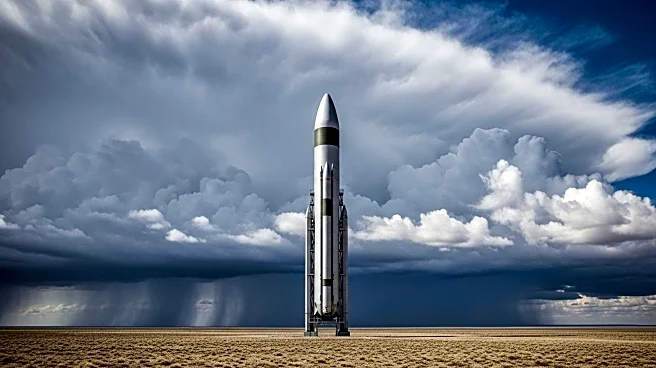What's Happening?
Since 2020, China has significantly expanded its nuclear arsenal, with the Pentagon estimating its stockpile to have doubled in size and projecting it to reach about 1,500 warheads by 2035. This expansion has transformed the U.S. nuclear weapons policy discourse, with Adm. Charles Richard noting the fundamental changes in U.S. strategic deterrence due to facing two nuclear-capable strategic peer adversaries. Additionally, U.S. lawmakers have urged Beijing to engage in talks over its rapidly growing nuclear arsenal to prevent miscalculation and ensure mutual understanding.
Why It's Important?
The expansion of China's nuclear capabilities poses a significant challenge to U.S. strategic deterrence, as it now faces two nuclear-capable adversaries simultaneously. This development could necessitate a reevaluation of U.S. nuclear strategy and force structure to maintain effective deterrence. The situation underscores the importance of diplomatic engagement with China to mitigate risks of miscalculation and potential conflict. The U.S. may need to consider expanding its nuclear capabilities or adjusting its strategy to address this new reality.
What's Next?
The U.S. will likely continue to push for diplomatic talks with China to address concerns over its nuclear expansion. Additionally, there may be discussions within the U.S. government and among allies regarding potential adjustments to nuclear strategy and force structure. The evolving geopolitical landscape could lead to increased military spending and strategic partnerships aimed at countering the perceived threat from China.
Beyond the Headlines
The expansion of China's nuclear arsenal could have long-term implications for global nuclear stability and arms control efforts. It may prompt other nations to reassess their nuclear policies and capabilities, potentially leading to an arms race. The situation also highlights the need for renewed focus on international arms control agreements and non-proliferation efforts.










